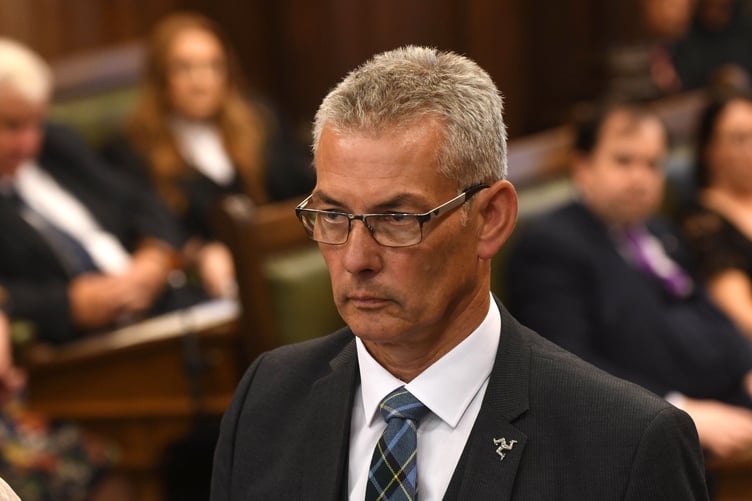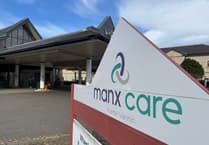The Manx Utilities annual plan has been voted through by Tynwald.
Its key objectives lie in renewable electricity, water security and sewage treatment.
Chair Tim Crookall explained in his opening statement that the body plays a ‘critical role’ in supporting the economy and community of the island.
‘Without their electricity, water and wastewater utility services being provided 24 hours a day every day of the year our lives would be vastly different,’ he said.
‘Our plan sets out a major change programme alongside the continued delivery of a quality, reliable and good value utility services.
‘The key to our plan are the objectives that we have from the government’s Island Plan, approved by this court in January.
‘These are the installation of 20MW of renewable electricity generation by 2026, completion of the regional sewage treatment strategy to end continuous discharge of raw sewage into our seas, and a programme to improve our water security.’
wholesale
Mr Crookall says the ‘extraordinary’ wholesale energy prices in Europe have had the most significant impact on Manx Utilities.
He added: ‘We have sought to limit the impact of wholesale cost increases on our customers to the value of approximately £40 million over the last two years.
‘However, it’s not possible to maintain this as reserves have depleted to the point where a deficit of £45 million is anticipated for the year ended March 31, 2023.
‘Regrettably, this has meant implementing a tariff review as the higher than average wholesale energy prices are expected to continue through 2023 and 2024.
‘Despite the increases required, Isle of Man electricity prices will still be below UK prices and will continue to support our customers who require that extra level of support through this difficult time.’
Meanwhile, climate change remains a key threat to the global environment, and Manx Utilities has continued to support the government’s targets.
It’s working towards the delivery of 30MW of renewable generation in the island by way of 20MW of wind and 10MW of solar power.
Further work also continues on the additional renewable capacity required post-2026.
The chair said: ‘We remain committed to placing security of supply the key deliverable for our island.
‘We continue to expand our public charging network for electric vehicles to support demand.
‘The first phase of the smart meter roll-out across the island has been completed providing prepayment customers with upgraded “SmarterPAYG” units and providing self-service for top-ups online in addition to time of use data to help manage consumption.’
Mr Crookall explained that work to improve water resilience and reduce the impact of climate change on the island’s water supplies has ‘significantly increased’, with schemes to replace water mains starting.
He said: ‘The targeted replacement of water mains prone to burst will reduce water losses through leakage and pressure management activities.
‘With further schemes planned, it is reassuring to see that these activities are already showing a reduction in water losses with leakage now reduced to the lowest it has been since records began.’
Work has also started to identify all possible options for the remaining catchments of Peel and Garff in terms of sewage treatment.
Mr Crookall said Manx Utilities continues to work with local communities and key stakeholders.
In the debate around the plan, Tynwald members questioned the promises made about renewables in particular.
Rob Mercer MLC said: ‘The MUA has finally woken from its slumber on renewables.
‘This plan shows us that delivery of future energy systems for our residents and businesses is finally underway.
‘The MUA is now front and centre for the delivery of one of the pillars in the Island Plan and our island’s commitments to climate action.
‘The Isle of Man’s economic ambitions are also dependant on the success of the MUA in delivering these objectives.
‘Prioritising the decarbonisation of our electricity supplies will provide long term energy security and stability.’
He asked how involved the MUA would be in dealing with the managed decline of the island’s gas network.
Mr Mercer also wanted to know what role the MUA will take on in managing the transition in a declining gas market and if the cost of remaining fossil fuel infrastructure would be ‘laid at the door of a declining number of people’.
Mr Crookall didn’t answer these questions in the sitting, instead opting to write any responses.
In relation to the MUA dealing with renewables, he said: ‘It’s about time, it had to happen. It’s a journey and we need to take people with us.
‘We all know it has to be done. We all know what’s happening and that we need to do better but we need to explain what we’re doing as we go along that journey, otherwise we will get people fighting back.
‘We will work with people.’
Dawn Kinnish MLC also brought up hydro power, suggesting new methods to help with wastewater.
The chair agreed with her suggestions, saying: ‘Energy security is vital to us.
‘In terms of power generation, especially hydro, it’s very limited in terms of what we can do in the island at the moment.
‘As and when we can do, we will be looking at that. We will also be looking at tidal, but tidal at the moment seems to be a long way off still. I know there are countries and islands that do it but it doesn’t seem to be as reliable yet as it could be in the future.
‘All these small things do add up. There will be a water security paper coming in the next few months. We’re going to CoMin shortly with a paper and having discussions on that, when we’ll come back to members on it.
‘God forbid we’ll ever need to bring in bottled water for any reason, we shouldn’t need to do that. The water we have here is great water.’
For more information, find the plan on the MUA’s website.



.jpeg?width=209&height=140&crop=209:145,smart&quality=75)
.jpeg?width=209&height=140&crop=209:145,smart&quality=75)
Comments
This article has no comments yet. Be the first to leave a comment.